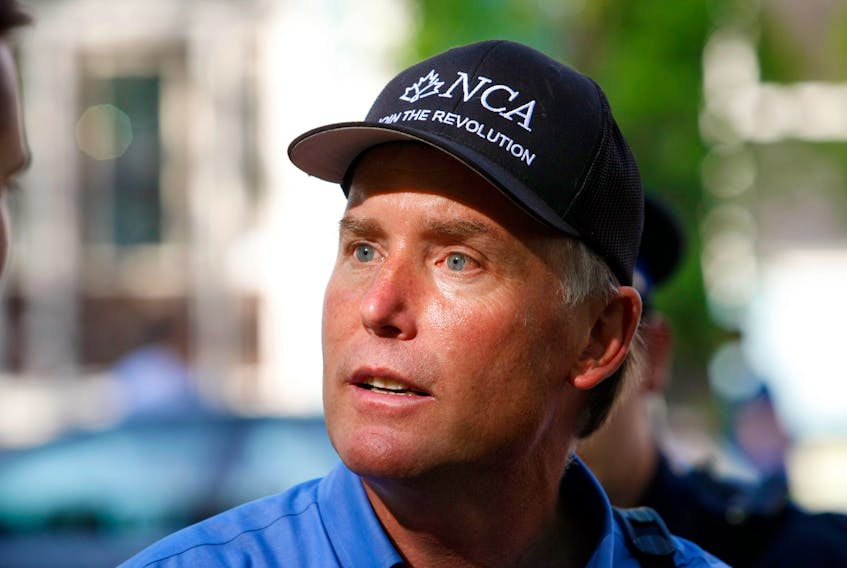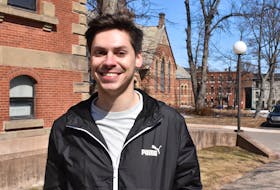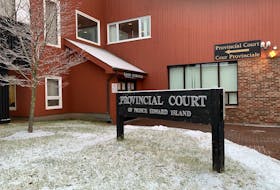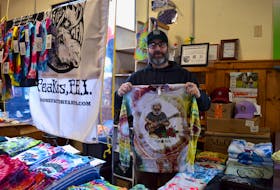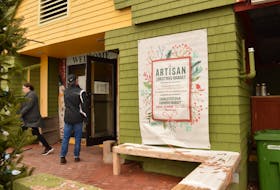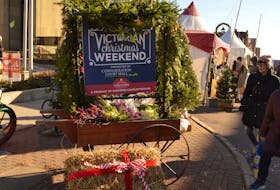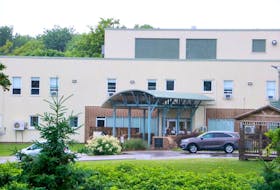Widely known for its friendly people and hospitality, Atlantic Canada isn’t the first place that comes to mind as a breeding ground for the alt-right.
But experts say the current political climate and rise of extreme right-wing ideologies in Europe and the United States are empowering a small segment of the Canadian population to go public with opinions that would have been, for most people, unthinkable just a few years ago.
Olivia Boonstra is a graduate student studying criminology at Ryerson University and has been tracking the movement of some of these groups.
According to Boonstra, the alt-right in Canada is comprised of pockets of loosely affiliated groups that largely communicate online but have slowly become more vocal.
Groups like the Proud Boys (not to be confused with the right-wing, not-for-profit groups like Ontario or Nova Scotia Proud), the Yellow Vest movement, Northern Guard, National Citizens Alliance, and even Maxime Bernier’s People’s Party of Canada are just a few that have made headlines across Canada in recent months. Some of these groups are informal, anonymous advocacy groups, while others are registered political parties and not-for-profits, and they exist on a spectrum of right-wing beliefs, from mainstream, small-c conservatism to to those with coded anti-immigration, anti-Islam and anti-Semetic sentiments, all the way to outright white supremacy.
If you look at polls, we’re a region that’s disproportionately open to immigrants and newcomers. — Howard Ramos
On the more extreme end of the spectrum, Boonstra said, are groups like the Northern Guard (formerly the Soldiers of Odin), which the Canada Anti-Hate Network describes as a militant anti-Muslim group with neo-Nazi ties; the remnants of the Newfoundland and Labrador chapter of Yellow Vests Canada, a primarily online group that shares content via a Facebook page called NL Media, and the National Citizens Alliance, a registered political party.

Boonstra said many of these groups publicly present themselves as promoting the interests of “Canadians first” or expressing concerns about the negative impact of immigration, while actually harbouring more extreme, racist ideologies.
The Northern Guard, for example, will often do “patrols” of Halifax where they hand out pizza to homeless people.
“They have a really big thing about anti-bullying and homelessness,” she said. “For them, it’s a scapegoat. It’s this idea that if we continue (to) allow immigration, then we’re taking these resources away from ‘real Canadians’ and giving them to people who are not within their idea of Canada.”
Boonstra said while Atlantic Canada isn’t an area of the country where ultra-conservative policies win a lot of votes, she believes they’ve gained footing in the region because of its smaller, mainly Euro-Christian population.
“I’m in Toronto. You don’t see as much action right, because they think they know in Toronto they would be completely outnumbered,” she said. “A lot of them are willing to organize in smaller areas, just because there’s less of a threat.”
Hasan Hai, an unsuccessful Liberal candidate in the last provincial election in Newfoundland, who is well known locally for his charity work, said when he moved to Newfoundland from Ottawa about 12 years ago he experienced a lot more ignorance and internalized racism than the more overt teasing he experienced growing up.

But in recent years, he said he’s noticed a mobilization of people with overtly anti-immigrant and racist beliefs.
That shift, he believes, coincided with the rise of Donald Trump in the U.S., and has come to a head in the last year with the formation of the Newfoundland chapter of Yellow Vests Canada as part of the group’s nationwide protests against immigration and in support of the oil and gas industry.
Hai said he believes the downturn in the oil and gas industry and other economic issues are causing people to become resentful over something they can’t change, so they’re using immigrants and minorities as the scapegoat for their anger.
Hai said he’s been repeatedly the target of racist comments by groups like the Yellow Vests and their supporters online, things like being labelled a terrorist or compared to Osama bin Laden, and he worries their rhetoric is spreading and becoming more mainstream.
“I fear for my children and I fear for people who don’t have the same privilege that I do that I have a deep and rich network locally... someone who’s new and doesn’t have that same social structures in place, they’re targets.”
Federal election
Despite living in Calgary, where the self-proclaimed populist National Citizens Alliance is headquartered, leader Stephen Garvey is running in the upcoming federal election in the Nova Scotia riding of Cumberland-Colchester. Five of the party’s 11 announced candidates are running in the Maritimes.
Garvey’s policies are decidedly anti-immigrant, and he speaks extensively about the need to preserve Canada’s “European heritage."
In blog posts, Garvey warns that “sustained immigration” is causing the replacement of white Canadians with “Third World” immigrants. His platform calls for a change of the Canadian Charter of Rights and Freedoms to include the preservation of European-Canadian heritage.
But in speaking with SaltWire, Garvey categorically denied being a white supremacist and blamed his reputation as such on a “cultural-Marxist” smear campaign.
“We believe in Canadian sovereignty, national citizenship. We believe in working with other countries, but we don’t believe in selling out the country to globalist economic interests,” he said.
When asked, Garvey didn’t offer a straight answer about why he chose to run in Nova Scotia, except to say he has many friends in the region.
At the same time, National Citizens Alliance rallies in the province have been met with significant resistance and counterprotest and Garvey said he can’t find anyone in the region who will rent him a conference room, something he plans to file a human rights complaint about.
Garvey also made headlines last spring when he was met with significant resistance after bringing his message to the Annapolis Valley Apple Blossom Festival.

This, according to Dalhousie political sociologist Howard Ramos, is a significant point — the voices of the alt-right may be loud, but it doesn’t mean Atlantic Canadians agree.
“Certainly there have been groups trying to mobilize. But when you look at some of the realities that have tried to occur in places like Halifax, you see far more anti-racist (support) show up than people who support these fringe groups,” he said. “If you look at polls, we’re a region that’s disproportionately open to immigrants and newcomers.”
While Ramos said it’s important to track these groups, and for media to report on them, it’s also crucial not to spread their messaging or provide the illusion that their views are more mainstream than they are.
“Our region has grappled with racism and there are issues of racism that are systemic and institutional that still need to be addressed and challenged, there’s a lot more work for us to do. But... in a world that has increasingly become more open to these views, it’s important to share the story that at least in this region, it seems that the majority is not moving there.”
RELATED:

